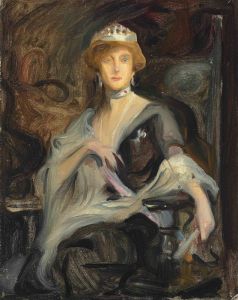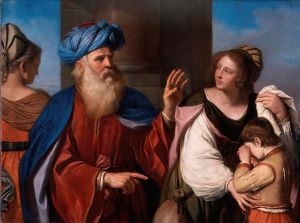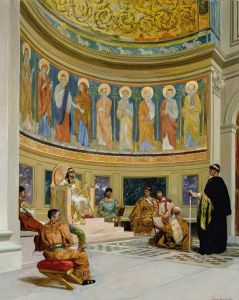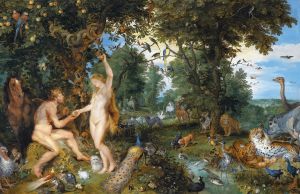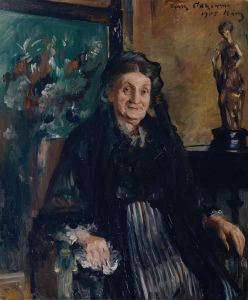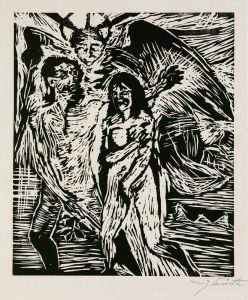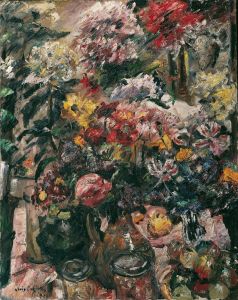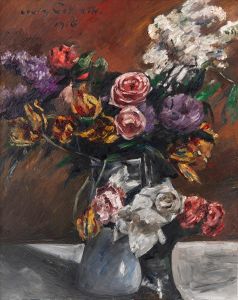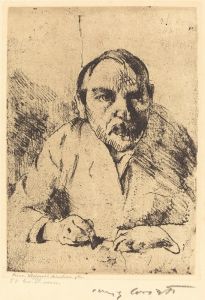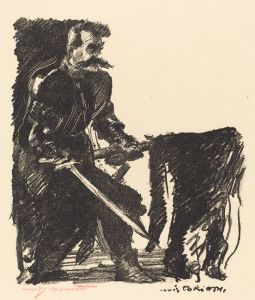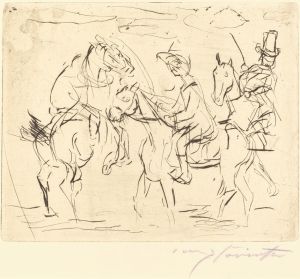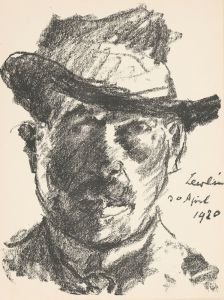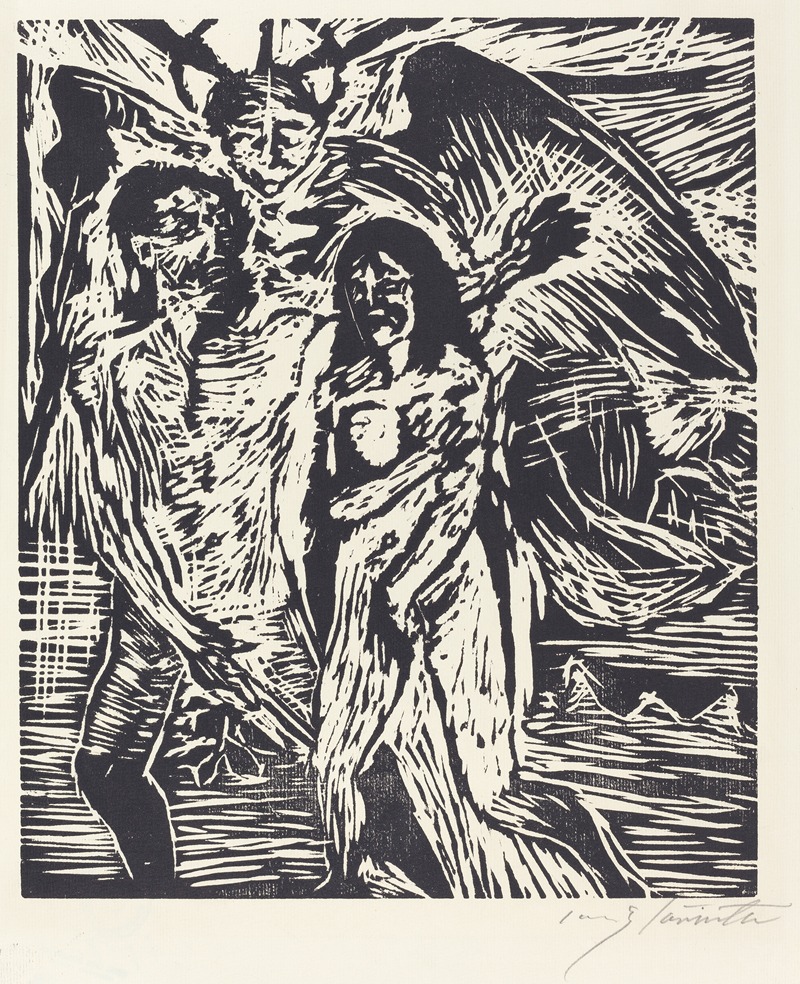
The Expulsion from Paradise
A hand-painted replica of Lovis Corinth’s masterpiece The Expulsion from Paradise, meticulously crafted by professional artists to capture the true essence of the original. Each piece is created with museum-quality canvas and rare mineral pigments, carefully painted by experienced artists with delicate brushstrokes and rich, layered colors to perfectly recreate the texture of the original artwork. Unlike machine-printed reproductions, this hand-painted version brings the painting to life, infused with the artist’s emotions and skill in every stroke. Whether for personal collection or home decoration, it instantly elevates the artistic atmosphere of any space.
Lovis Corinth's painting The Expulsion from Paradise is a notable work by the German artist, created in 1914. Corinth, a prominent figure in the transition from Impressionism to Expressionism, was known for his dynamic and emotionally charged compositions. This painting depicts the biblical story of Adam and Eve being expelled from the Garden of Eden, a theme that has been explored by numerous artists throughout art history.
In The Expulsion from Paradise, Corinth portrays the moment of Adam and Eve's banishment with dramatic intensity. The figures of Adam and Eve are rendered with a raw, almost visceral quality, emphasizing their vulnerability and despair. The angel, wielding a flaming sword, is depicted as a powerful and imposing figure, enforcing divine judgment. The composition is marked by Corinth's expressive brushwork and a vivid use of color, which heighten the emotional impact of the scene.
The painting reflects Corinth's mature style, characterized by a blend of realism and expressionistic elements. His use of light and shadow, as well as his attention to anatomical detail, demonstrates his technical skill, while the emotional depth of the work reveals his ability to convey complex human experiences. The chaotic and turbulent atmosphere of the painting may also reflect the broader cultural and social upheavals of the early 20th century, though Corinth's specific intentions remain a matter of interpretation.
Lovis Corinth created this work during a period of personal and professional transformation. In 1911, he suffered a stroke that temporarily paralyzed his left side, forcing him to adapt his painting technique. Despite this setback, Corinth continued to produce powerful and innovative works, and The Expulsion from Paradise stands as a testament to his resilience and artistic vision.
The painting is housed in the Museum der bildenden Künste in Leipzig, Germany. It remains an important example of Corinth's contribution to modern art and his ability to reinterpret classical themes through a contemporary lens.






